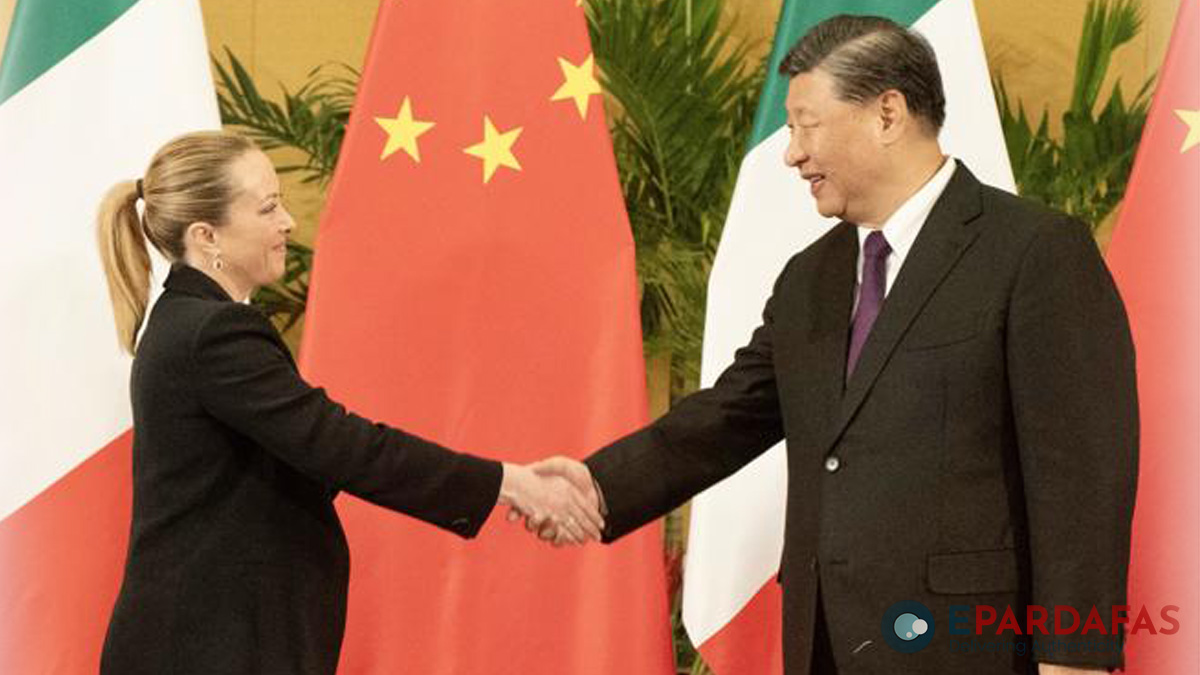
Italy Withdraws from Belt and Road Initiative: Unveiling the Quiet Exit in a Farewell Note to Beijing
ROME — In a move echoing diplomatic discussions and after weeks of confidential negotiations, Italy discreetly delivered a verbal note to Chinese government authorities in Beijing three days ago, formalizing its withdrawal from the Belt and Road Initiative (BRI). The cancellation of the agreement comes after four years of Italy’s participation in the ambitious project conceived by Chinese President Xi Jinping. The decision was made by the executive led by Giorgia Meloni and marks a significant shift in Italy’s foreign policy.
The formal exit was initiated through the cancellation of the agreement by the Italian government, despite attempts to renegotiate the terms, which were ultimately rejected by the Chinese after a few weeks of diplomatic back-and-forth. Italy’s participation in the BRI had been initiated during the tenure of Giuseppe Conte, leading to a strategic alignment with China that had both economic and geopolitical implications.
The only G7 state to participate in the BRI, Italy’s withdrawal raises questions about the economic benefits and political consequences associated with the initiative. Italy, facing limited economic gains and unwanted political effects, chose to quietly disengage from the project without public announcements from either government.
Despite the exit, Italy, in a farewell note, expressed its commitment to maintaining a strategic partnership with China, a relationship that has existed for over a decade but has not fully materialized. The note was a diplomatic gesture, aiming to relaunch ties between the two countries, but uncertainties remain about potential commercial retaliation from Beijing.
Concerns have been raised about possible repercussions on the “Made in Italy” luxury sector, as China has the capacity to influence this industry significantly. The actual impact of the withdrawal and potential consequences will become clearer in the coming months.
The limited publicity surrounding the formal cancellation benefits both parties involved. Beijing, grappling with financial challenges within the BRI project, now has to manage the fallout of Italy’s departure. Italy, on the other hand, aims to maintain positive relations with the world’s second-largest economy, with opportunities for recovery in trade balance compared to its competitors, such as France and Germany.
The Memorandum on the Silk Road, signed by Giuseppe Conte and Xi Jinping on March 23, 2019, promised agreements of up to 20 billion euros. However, with the impact of the COVID-19 pandemic, opposition from Washington, and changes in the Italian government, Italy’s participation yielded limited results. Giorgia Meloni, now Prime Minister, fulfilled a promise made before taking office by leading Italy’s exit from the BRI. The consequences of this diplomatic move will unfold in the coming months.
















Comments